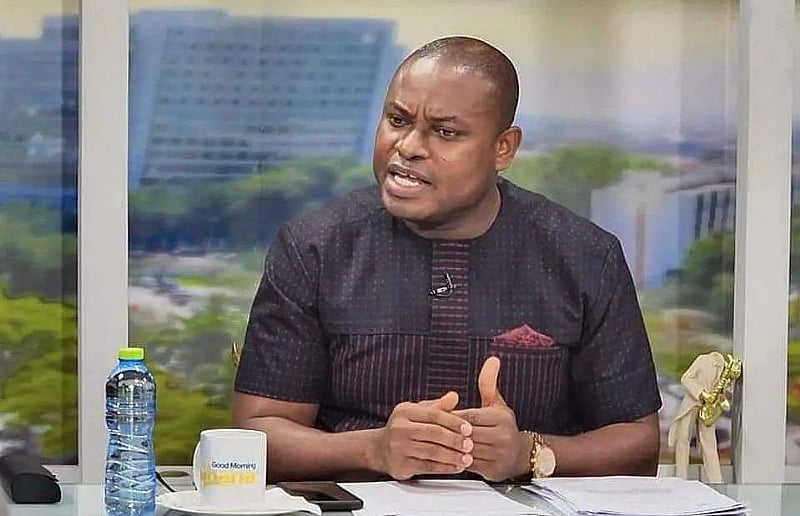The controversy surrounding two aircraft landings in Accra last month has ignited a debate about transparency and the appropriate channels for disseminating information to the public. Richard Ahiagbah, Communications Director for the New Patriotic Party (NPP), has criticized the government’s handling of the situation, arguing that the matter should be addressed by relevant professional bodies like the Narcotics Control Commission (NACOC), rather than government spokespersons. He contends that relying on political figures to address technical and potentially sensitive issues risks obscuring the truth and eroding public trust. Ahiagbah’s call for professional intervention underscores a growing concern about potential attempts to downplay or obfuscate the circumstances surrounding the flights, particularly regarding the nature of their cargo. His public questioning of the government’s motives reflects a broader skepticism about the official narrative presented thus far.
The two flights in question, Air Med Flight N823AM and Cavok Air Antonov 12B, landed in Accra in March. The Minority Caucus in Parliament, led by Rev. John Ntim Fordjour, MP for Assin South, has raised serious concerns about the flights, alleging they may have been carrying illicit substances and large sums of cash. Fordjour’s demands for transparency and accountability have been met with resistance from the government, further fueling suspicions about the true nature of the aircraft’s missions. The Minority’s allegations, while yet unsubstantiated, have introduced an element of doubt into the public discourse, highlighting the importance of a thorough and independent investigation to ascertain the facts of the matter. The situation underscores the critical role of opposition parties in holding the government accountable and ensuring transparency in governance.
The government, through Felix Kwakye Ofosu, Minister of Government Communications, has refuted the allegations made by the Minority Caucus. Kwakye Ofosu has stated that both flights, classified as a cargo aircraft and a medical flight respectively, had legitimate reasons for landing in Ghana. He maintains that the aircraft were subjected to thorough inspections by security agencies, which found no illegal items on board. This official explanation, however, has failed to quell the concerns raised by the opposition and some segments of the public, who remain unconvinced by the government’s assurances. The differing narratives presented by the government and the opposition have created a climate of uncertainty and fueled demands for greater transparency and a more comprehensive investigation.
The clash between the government’s assertions and the opposition’s allegations has exposed a fundamental disagreement about the appropriate handling of sensitive information related to national security. Ahiagbah’s insistence on the involvement of NACOC reflects a desire for a more technically informed and less politically charged assessment of the situation. He argues that allowing professionals with expertise in narcotics and related matters to address the public would lend greater credibility to the investigation and reassure the public that the matter is being handled with due diligence. This emphasis on professional expertise underscores a concern that political considerations may be influencing the government’s response and potentially hindering a full and transparent investigation.
The government’s response, characterized by dismissal of the opposition’s claims and demands for evidence, has further exacerbated the controversy. The Spokesperson to the President went so far as to threaten the Assin South MP with arrest if he failed to produce evidence supporting his allegations. This aggressive stance, instead of promoting transparency and assuaging public concerns, has been perceived by some as an attempt to intimidate and silence dissenting voices. Such a response risks undermining public trust in the government’s handling of the situation and reinforces suspicions of a potential cover-up. The government’s reaction raises questions about its commitment to open dialogue and accountability, particularly in matters of national security.
The controversy surrounding these two aircraft landings reveals a deeper tension between the government’s desire to control the flow of information and the public’s right to know. Ahiagbah’s call for professional intervention, coupled with the opposition’s demands for transparency, highlights the importance of independent oversight and accountability in matters of national security. The government’s defensive posture and dismissive rhetoric, on the other hand, have only served to deepen public skepticism and fuel suspicions of wrongdoing. This ongoing debate underscores the need for a robust framework that ensures transparency and accountability in government operations, especially those involving sensitive national security issues. A fair and impartial investigation involving relevant professional bodies is crucial to establish the truth and restore public confidence. The outcome of this controversy will have significant implications for the future of transparency and accountability in Ghanaian governance.














